The Maltese islands attract, every year, tens of thousands of divers, most of whom claim that the best dives are off Gozo. There are fantastic arches, tunnels, wrecks, caves and lagoons to explore and the underwater landscape is as varied as the topography. The most stunning dive of all is that at the Azure Window in Dwejra, with its deep, plunging pool of clear blue water, surrounded by breathtaking rock formations, caves and drop-off points. The water is diver-friendly all year round, as the temperature rarely drops below 16°c and the sights and sport fishing get to be exciting even in the winter months. The waters are clear and blue as there are virtually no tides or green vegetation and fertilisers that, elsewhere create poor visibility. On most days visibility of between 40 and 50 metres is enjoyed.
The rocky sea-bed offers many a hiding place for sea creatures, from the gaping grouper to the creeping octopus. Enormous caverns shelter wondrous forms of life, but these are best captured on film. It is the same with archaeological remains, of which there are many, all protected by law. Serendipitous finds may not be lifted or removed, but should be reported at once to the Museums Department.
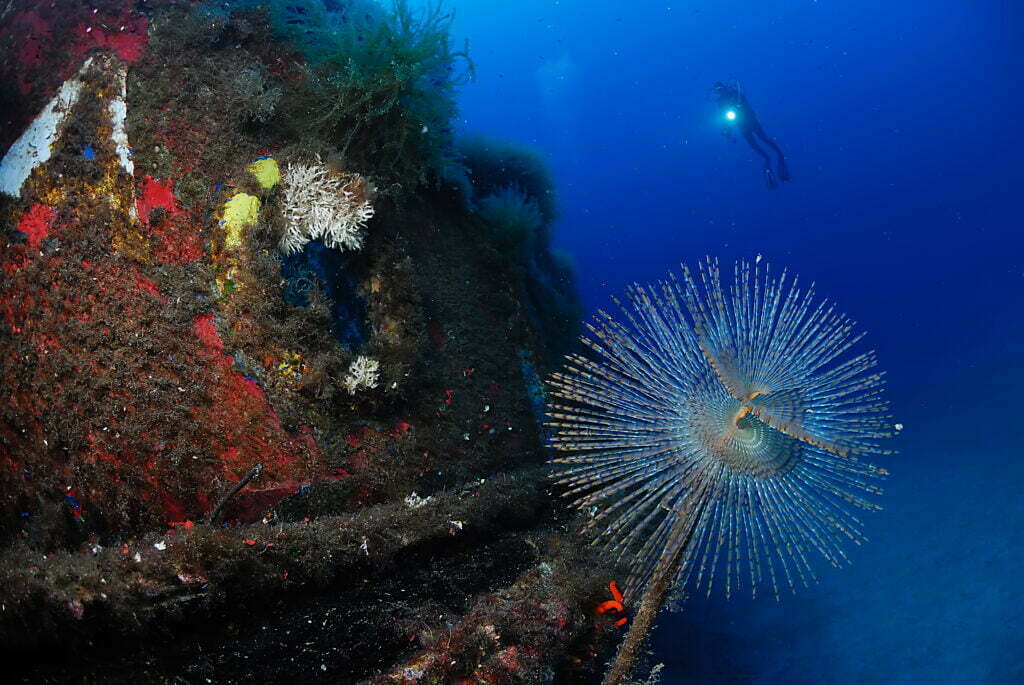
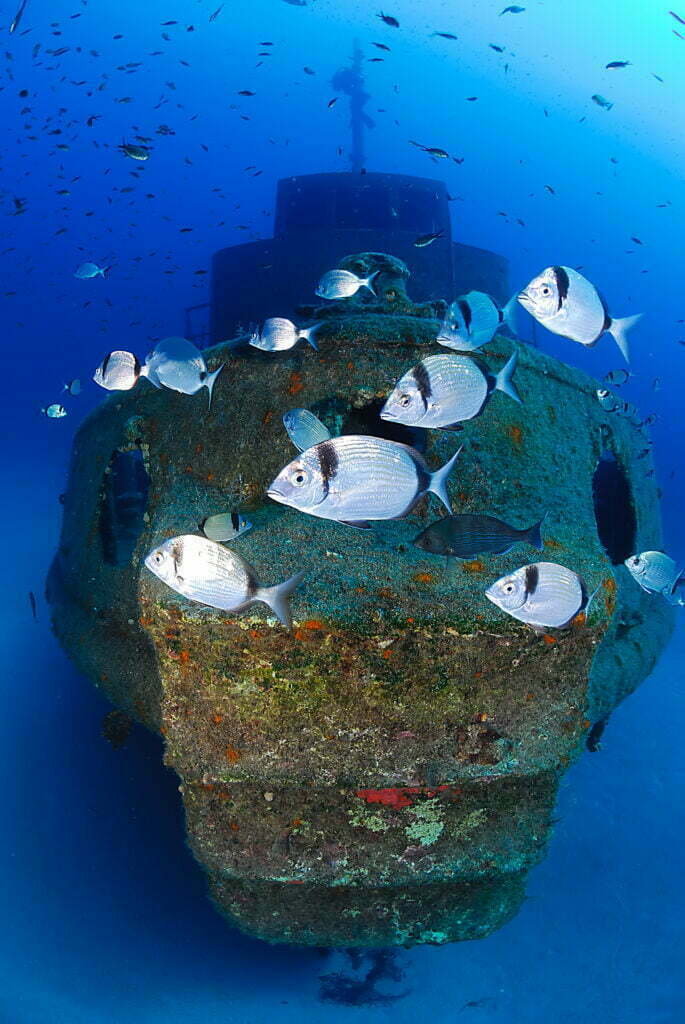
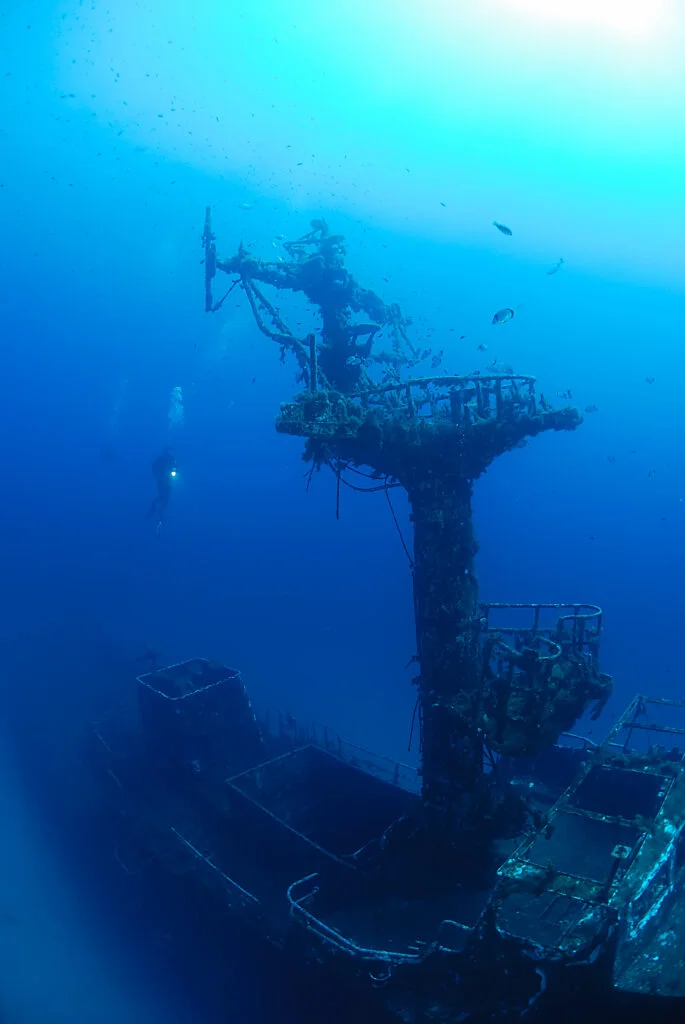
Though dolphins were once common in the deep waters around Gozo, leading to their one-time incorporation in the country’s coat-of-arms and immortalisation in thousands of brass door knockers, they are now a rarity. The occasional dolphin sighting is a great thrill, worthy of note in the local newspapers. There are no sharks which are dangerous to man, and tuna stays far out to sea. To make up for this absence of heavy-weights the waters of Gozo offer divers plentiful sightings of curious groupers, amberjack, bream, wrasse, squid, flying fish, sting rays, barracuda, eagle rays and nudibranchs.
Gozo’s diving schools can get people scuba diving in next to no time at all, even if they are starting from scratch. There are several diving centres on the island and the facilities available are excellent. A unique record of repeat customers is proof of the high quality of the service offered. Most centres are open seven days a week every week of the year and offer their services in a variety of languages. The best schools have organised themselves into the Association of Professional Diving Schools, with a guarantee that staff are well-trained professionals. Even the most experienced divers are advised to make contact with a diving school, because this serves as a convenient point of entry to the Gozitan diving scene. The schools, besides teaching, offer a one-stop-shop for all that is connected with diving, hiring of equipment, organisation of dives at special spots and smoothing out administrative procedures like the c-card. Divers are welcome to join other divers of similar experience on accompanied dives or else, if suitably qualified, to dive unaccompanied once they are already familiar with the dive sites.
The diving schools also organise the necessary medical checks. Bringing personal equipment along is not worth the expense and effort, as leasing it is inexpensive. Hyperbaric units are available in Malta and can be reached by a very efficient helicopter transfer from Gozo hospital. The centres can arrange for special dive permits that are necessary to carry out unaccompanied dives. First timers can have a go at a “try dive” at the shallow end of a safe bay or in a pool. courses leading to certification at various levels are also available.
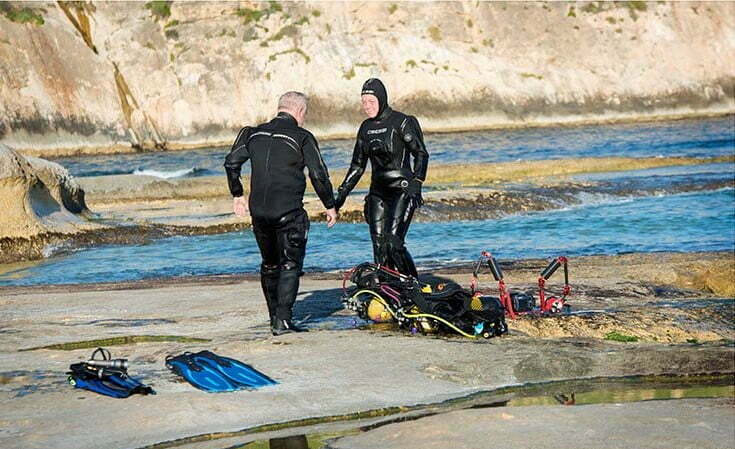
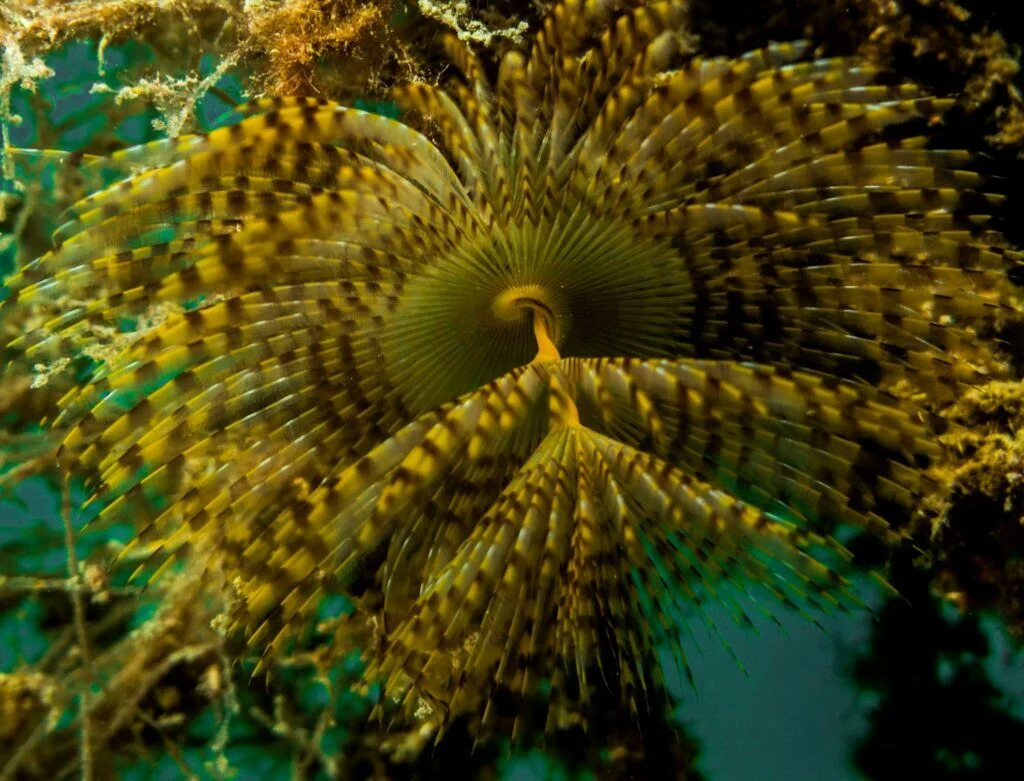
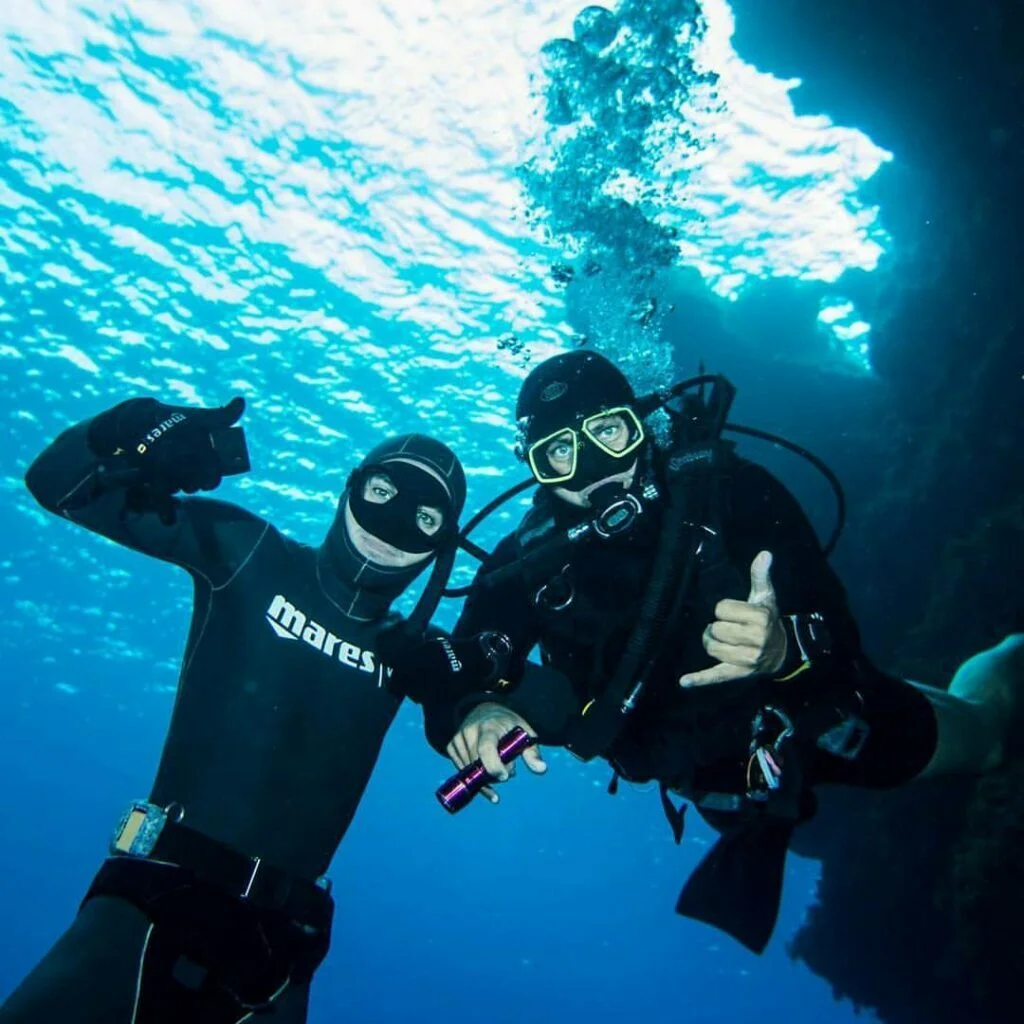
All centres have their own “dive trucks” to transport divers to dive sites accessible by road. Most centres also have a purpose- built dive boat to reach otherwise inaccessible site, some are fully equipped with a diving ladder, telecommunications equipment and an echo sounder. These boat dives are planned according to the sea and weather conditions. Shore diving is, of course, more economical.
Most centres have dives twice daily and night dives are organised according to demand. During night dives one can have a close up look at the moray eel, octopus, sepia, cuttlefish, squid and other nocturnal marine creatures. The schools organise these torch-lit expeditions for competent divers in search of adventure. The morning dives leave around 9.00 am while the afternoon tours leave around 2.00pm. There are also full day boat trips to the nearby island of comino.
